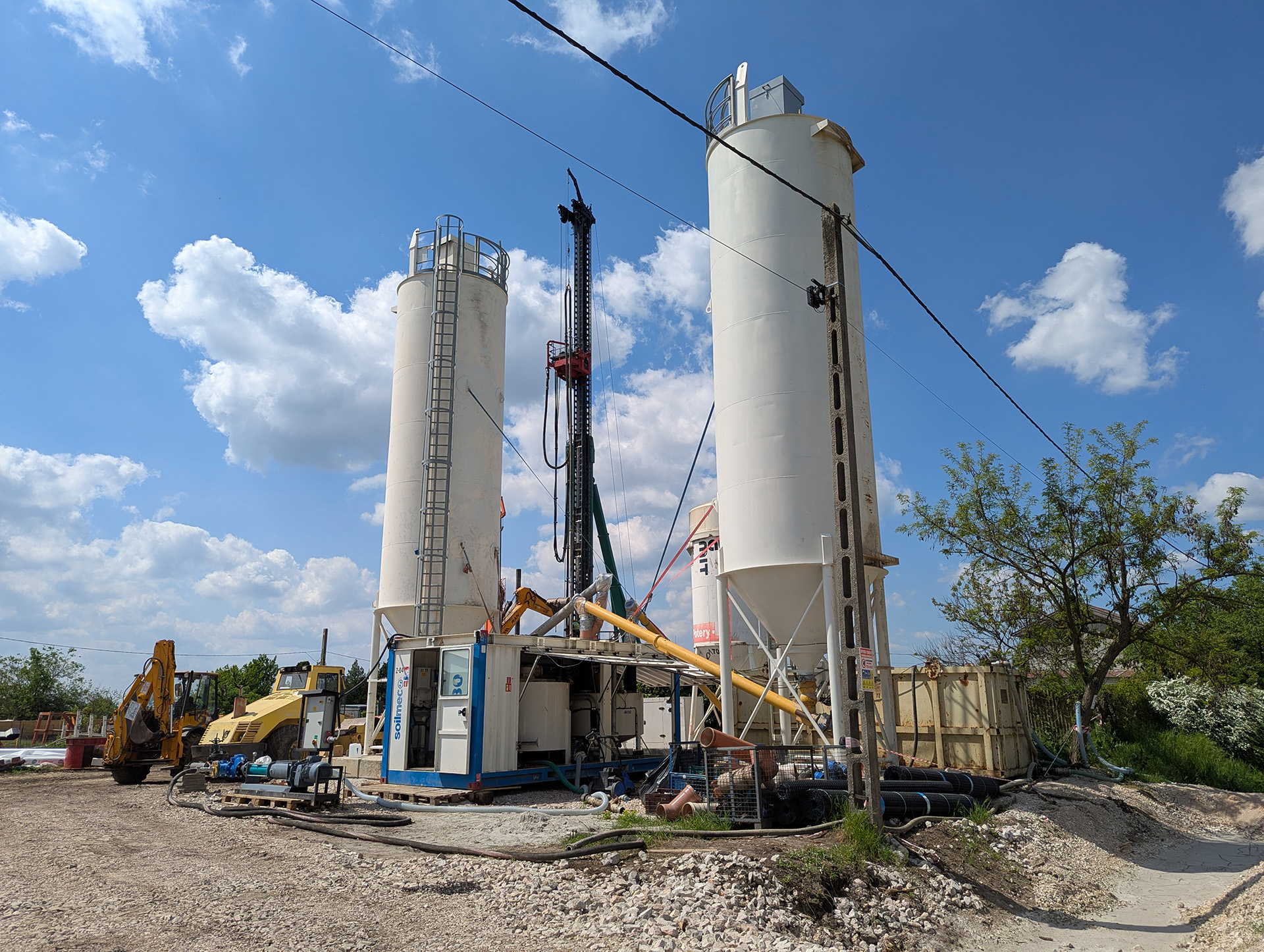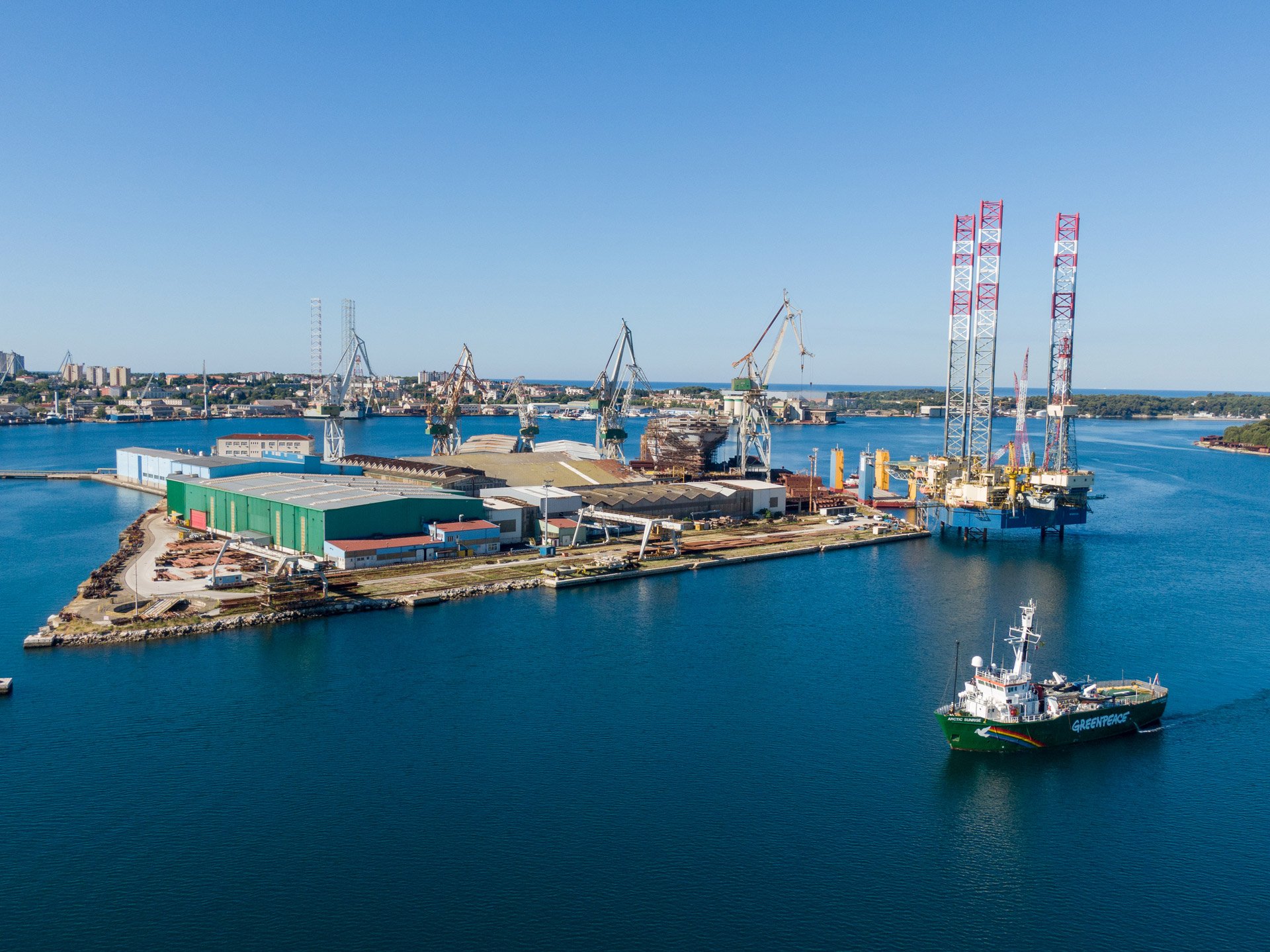Budapest, 4 February 2019 – The verdict of the Hungarian red sludge disaster court case, announced today, is of historic importance – yet, the key questions that would reveal the authorities’ responsibility remain unanswered. Only independent and efficient authorities combined with strong legislation enshrining the ‘polluter pays’ principle can ensure that Hungary avoids similar disasters in the future.
Today’s court ruling is undoubtedly of historic importance, as this is the first time that a private company’s officials’ have been sentenced for criminal negligence in an environmental catastrophe. However, the verdict does not give answer to key questions about how the deficiencies in the work of the authorities contributed to the 2010 red sludge disaster.
As Greenpeace Hungary pointed it out a number of times, [1] the actual operations in the Ajka red sludge storage facility differed significantly from what the owner company Mal had permits for – a deflection both the company officials and the relevant authorities were aware of.
Firstly, in the 2010 accident, more than 1 million cubic metres of liquid waste (highly alkaline, also containing toxic metals) had been released from reservoir no. 10 whereas the company’s disaster prevention plan was modelled on up to 400,000 cubic metres of toxic waste.
Secondly, while it was later shown that the dam was sagging at the point of the rupture for years before, [2] from 2002 until the 2010 accident, not a single authority (neither the territorially competent environmental or mining inspectorate, nor the notary) performed a check on reservoir no. 10’s stability and statics.
Thirdly, both the facility and the red sludge in the reservoir had been wrongly classified, thus no authority considered itself responsible for checking the reservoir from 2002 onwards. After the catastrophe, the European Commission stated that the Ajka–Kolontár red sludge should have been classified as dangerous waste – therefore, authorities erroneously permitted Mal’s operation. As Janez Potočnik, then European Commissioner for Environment, said, “the Commission considers that this waste should have been classified as hazardous given the highly corrosive properties of the waste. Consequently, appropriate requirements should have been established thereto for the correct treatment of this waste”. [3]
A reason for the authorities not being fully capable of performing their duties is that over the last decade, they have been weakened to the point of serious deficiencies in controlling work and loosened permitting practices. Furthermore, rather than strengthening their positions, the government has been constantly curbing their independence causing further concerns.
As of today, there is still no legislation in force that could ensure the “polluter pays” principle. In order to avoid such severe accidents in the future, the government should immediately fill this gap, and strengthen the authorities, whilst also grant their independence of political or other interests.
See also the 2011 Kolontár report: https://secured-static.greenpeace.org/hungary/PageFiles/717689/Kolontar-report.pdf
Notes
[2] See pages 35 to 53: http://www.icsoba.org/sites/default/files/ctools/newsletter/04%20ICSOBA%20Newsletter%20Jan%2
[3] http://www.europarl.europa.eu/sides/getAllAnswers.do?reference=E-2010-011083&language=EN


